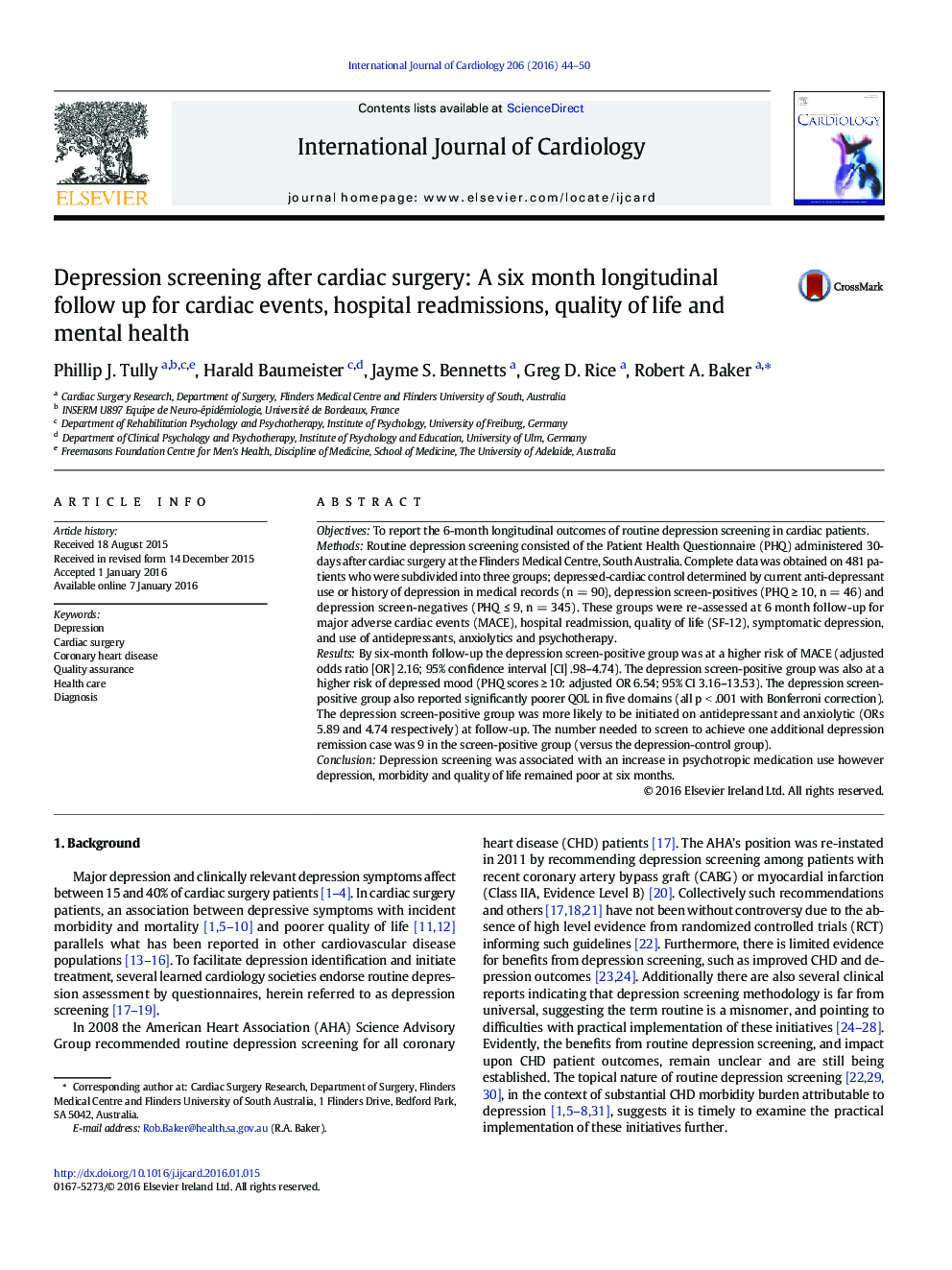| کد مقاله | کد نشریه | سال انتشار | مقاله انگلیسی | نسخه تمام متن |
|---|---|---|---|---|
| 2928748 | 1576144 | 2016 | 7 صفحه PDF | دانلود رایگان |
• Depression screening in CHD is not without controversy due to limited research.
• The 6 month outcomes of depression screening after cardiac surgery are reported.
• Patients identified by depression screening remained at risk of cardiac morbidity.
• Patients identified by depression screening remained at risk of depression at follow-up.
• There was evidence for increased antidepressant, anxiolytic and mental health service use.
ObjectivesTo report the 6-month longitudinal outcomes of routine depression screening in cardiac patients.MethodsRoutine depression screening consisted of the Patient Health Questionnaire (PHQ) administered 30-days after cardiac surgery at the Flinders Medical Centre, South Australia. Complete data was obtained on 481 patients who were subdivided into three groups; depressed-cardiac control determined by current anti-depressant use or history of depression in medical records (n = 90), depression screen-positives (PHQ ≥ 10, n = 46) and depression screen-negatives (PHQ ≤ 9, n = 345). These groups were re-assessed at 6 month follow-up for major adverse cardiac events (MACE), hospital readmission, quality of life (SF-12), symptomatic depression, and use of antidepressants, anxiolytics and psychotherapy.ResultsBy six-month follow-up the depression screen-positive group was at a higher risk of MACE (adjusted odds ratio [OR] 2.16; 95% confidence interval [CI] .98–4.74). The depression screen-positive group was also at a higher risk of depressed mood (PHQ scores ≥ 10: adjusted OR 6.54; 95% CI 3.16–13.53). The depression screen-positive group also reported significantly poorer QOL in five domains (all p < .001 with Bonferroni correction). The depression screen-positive group was more likely to be initiated on antidepressant and anxiolytic (ORs 5.89 and 4.74 respectively) at follow-up. The number needed to screen to achieve one additional depression remission case was 9 in the screen-positive group (versus the depression-control group).ConclusionDepression screening was associated with an increase in psychotropic medication use however depression, morbidity and quality of life remained poor at six months.
Journal: International Journal of Cardiology - Volume 206, 1 March 2016, Pages 44–50
